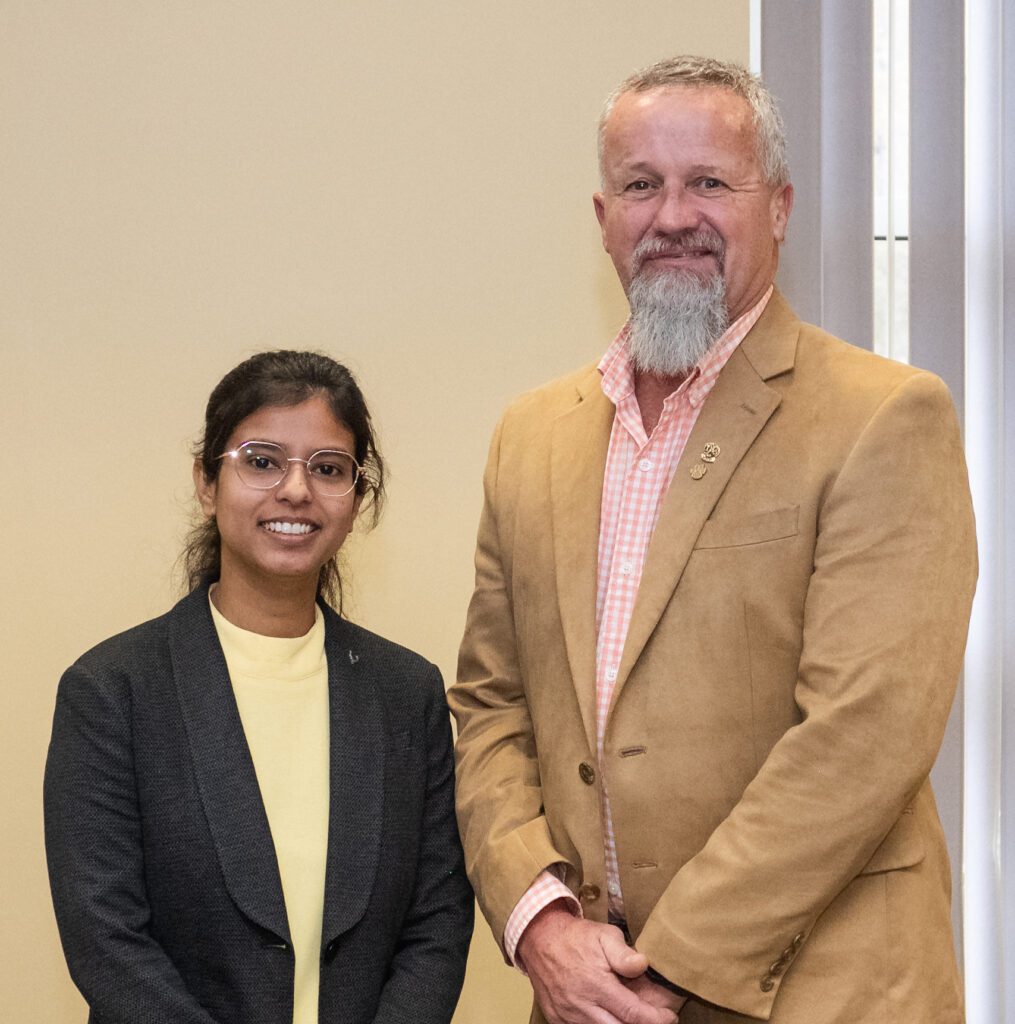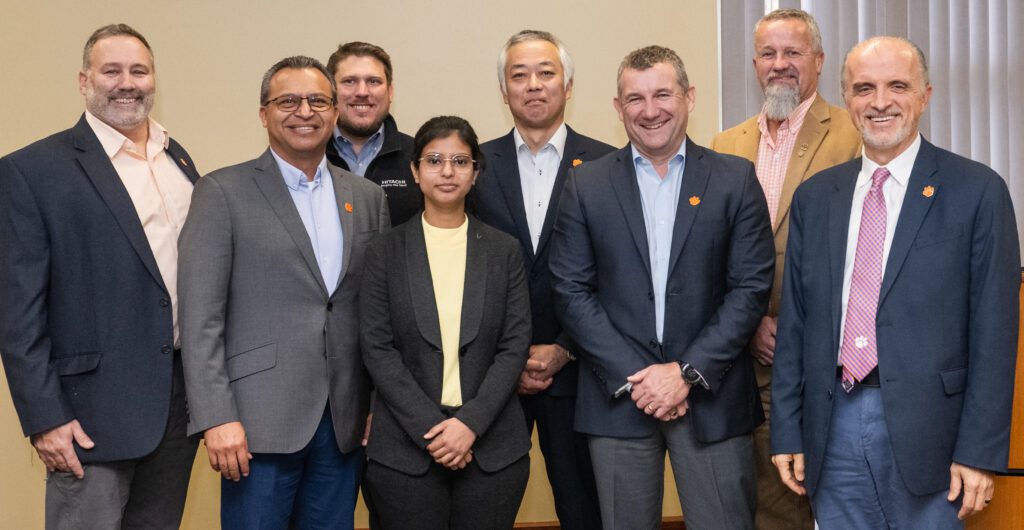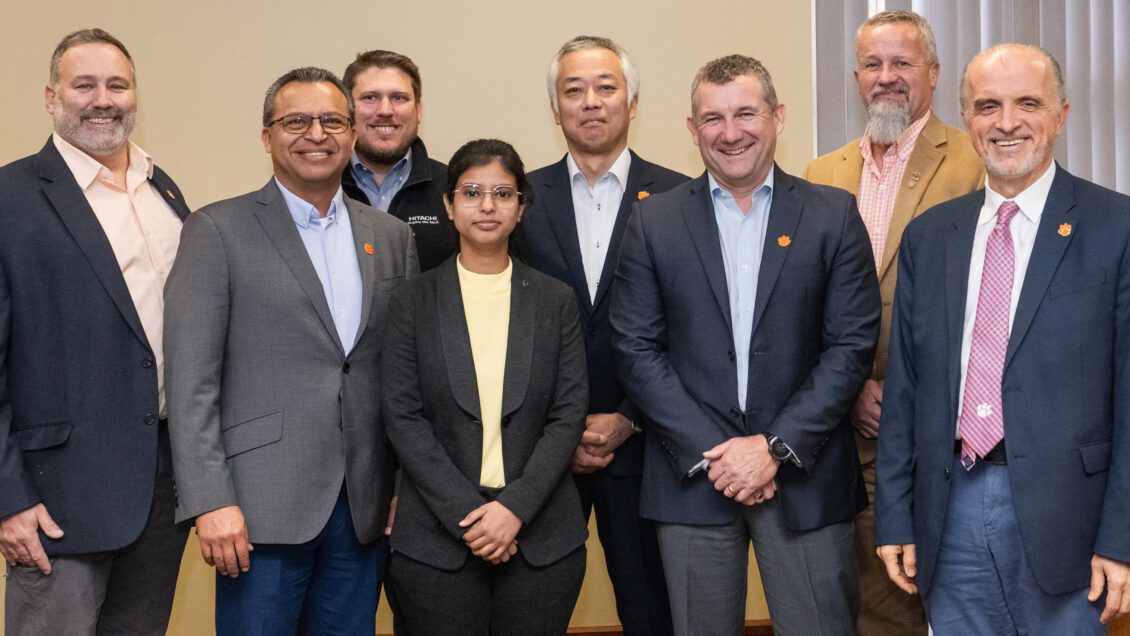Clemson University Ph.D. student Afreen Sultana is working to engineer higher barrier, biodegradable, paper-based packaging enhanced by cellulose nanocrystals taken from the proliferate kudzu plant.
The effort earned her a $25,000 fellowship from Hitachi High-Tech America Inc. to support her research and the completion of her doctoral degree in food technology.
Nearly 400 million tons of plastic waste is generated globally each year, only about 9 percent of which is recycled, according to the international Organization for Economic Cooperation and Development (OECD).
Paper-based packaging holds promise as an environmentally friendly, biodegradable alternative to petroleum-based plastics. The problem, however, is that paper is permeable to liquids, water vapors and gases. Current cardboard packaging often relies on synthetic polymer coatings to protect its contents. Recycling such materials can be challenging and costly.

Sultana is working to strengthen starch-based coatings by using cellulose nanocrystals taken from the invasive kudzu plant to improve paper-based packaging’s resistance to liquids and gases. For the starch, Sultana extracts from pearl millet, a summer hay crop that is inexpensive to grow. She’ll analyze materials at the molecular level using advanced equipment at Clemson’s Electron Microscopy Facility to finetune these biofilms.
Sultana is studying under the supervision of professor Scott Whiteside in the Department of Food, Nutrition and Packaging Sciences. Whiteside noted that Sultana has published nine research publications in the past three years and has successfully worked closely with packaging industry partners on sustainable packaging research.
“This is an excellent investment from Hitachi in a young, bright, creative scientist who I believe will continue to be a highly productive researcher,” Whiteside said.
Added interim Department Chair Feng Chen: “Developing innovative sustainable packaging materials is currently a hot topic in academy and will have a significant impact on the packaging industry. Dr. Whiteside and Afreen’s current study on developing starch-based, biodegradable packaging material is one of the possible solutions to reduce the use of non-environmentally friendly plastics, which will not only accommodate contemporary consumers’ needs, also keep our planet cleaner and safer.”
Hitachi High-Tech America established the fellowship in 2014 to support a graduate student using the Clemson University Electron Microscopy Facility to conduct research as part of their doctoral studies. Sultana is the 10th recipient and the first from the College of Agriculture, Forestry and Life Sciences.

“As a company committed to supporting sustainable solutions for the future, Hitachi is delighted to support Afreen Sultana’s research utilizing material science to secure our food supply,” said Lorena Ferry, vice president and general manager of Hitachi High-Tech America. “These are exactly the type of investigations our electron microscopes are engineered to perform and we are excited that Clemson has assembled such a state of the art research facility with Hitachi microscopes. We congratulate Afreen Sultana on her accomplishments and look forward to her future research.”
Hitachi has been instrumental in both the development of the Clemson University Electron Microscopy Facility in the mid-1990s, as well as its steady growth to become one of the nation’s premier academic electron microscopy facilities. The facility added several new Hitachi electron microscopes in recent years, for example, that are among the global company’s most advanced machines. Additionally, Hitachi has a staff member on site to ensure the advanced equipment is operating in top condition.
“I greatly appreciate our long-standing collaboration with Hitachi. These types of partnerships help Clemson Elevate its research and educational offerings to the next level,” said Tanju Karanfil, Clemson senior vice president for research, scholarship and creative endeavors. “This facility provides a unique platform for not only Clemson faculty to innovate, but for local industries that frequently utilize our equipment and expertise in their research and development efforts as well. Our students, meanwhile, are able to study on the latest technology available anywhere in the world, making them highly desirable job candidates after graduating.”
Get in touch and we will connect you with the author or another expert.
Or email us at news@clemson.edu

